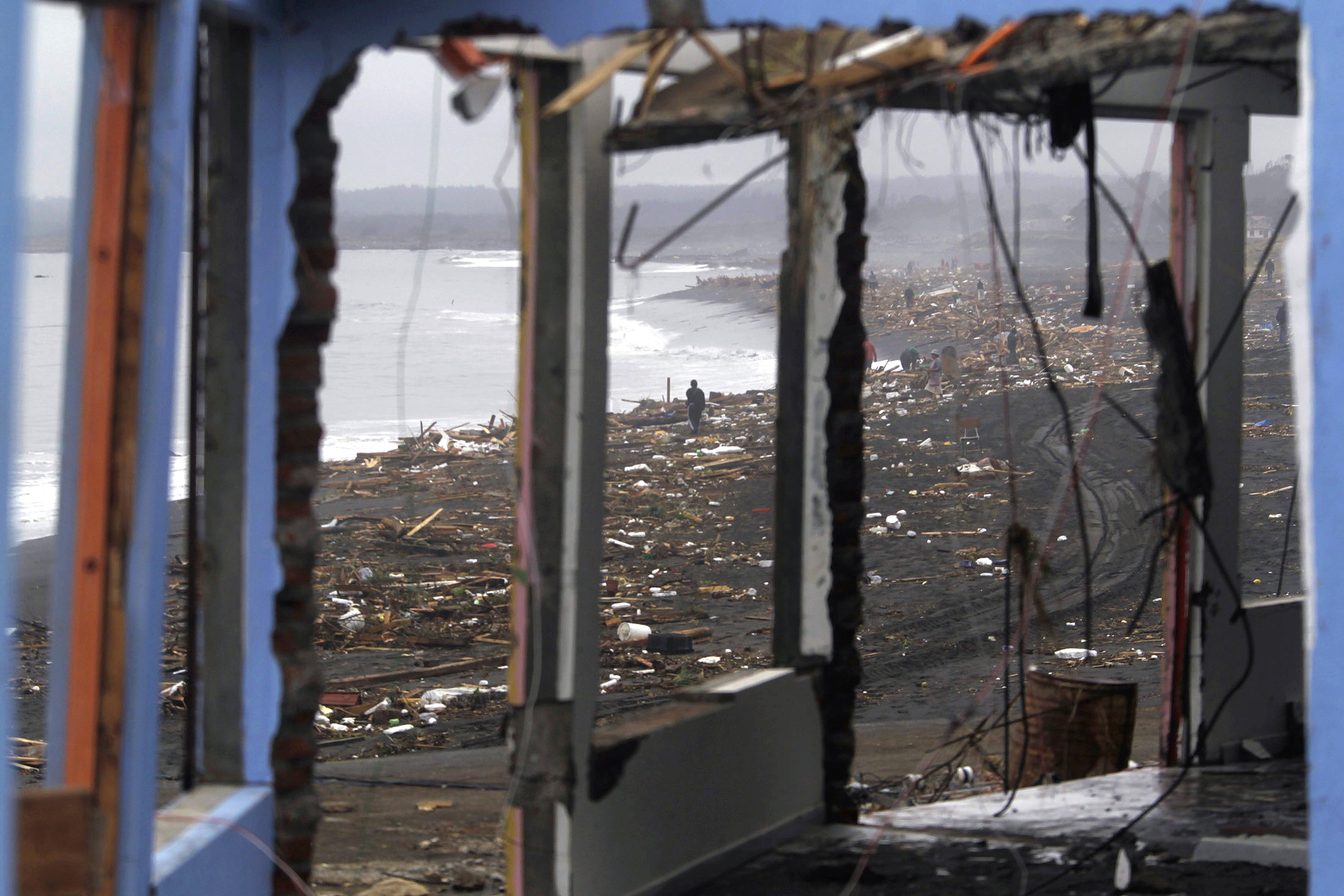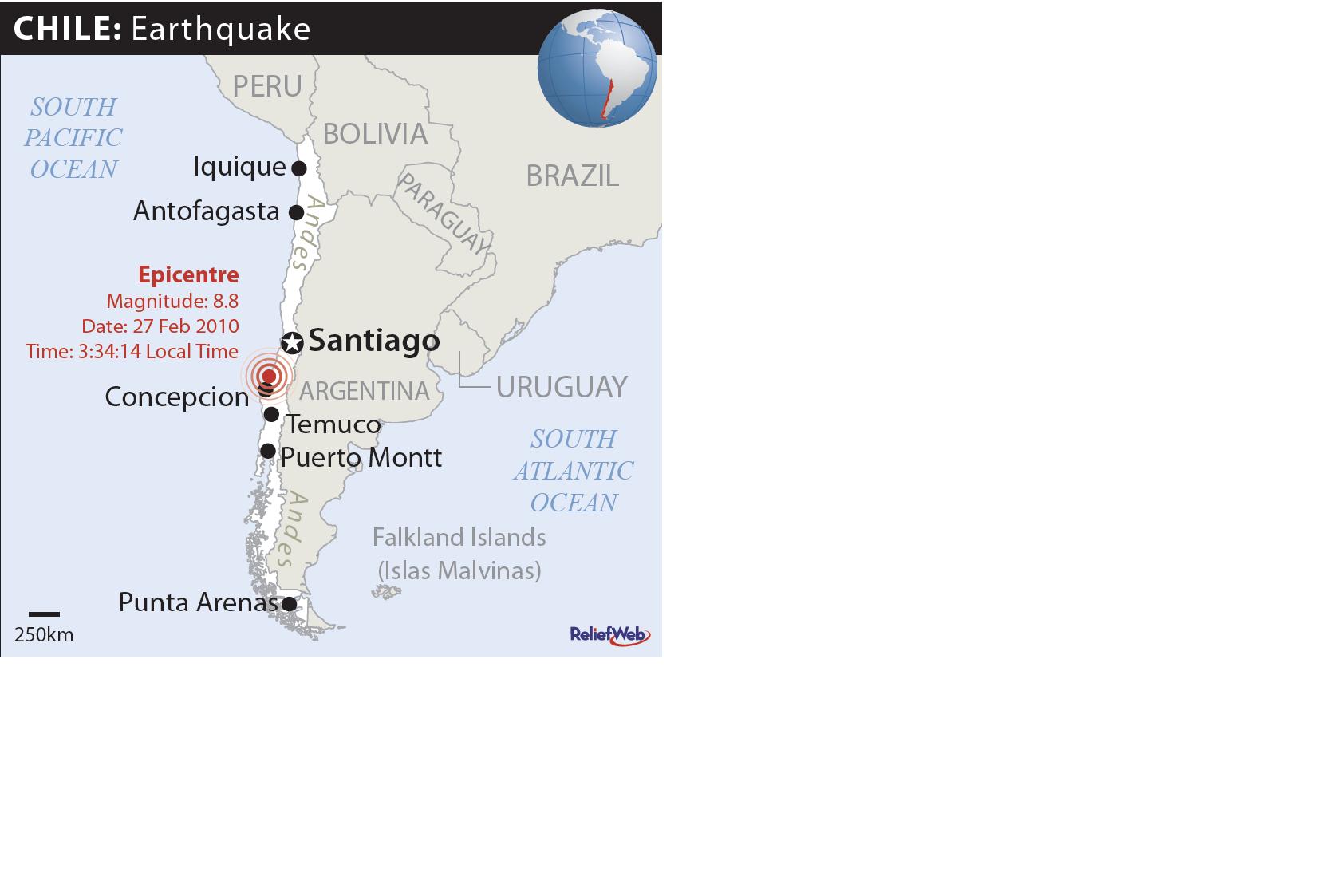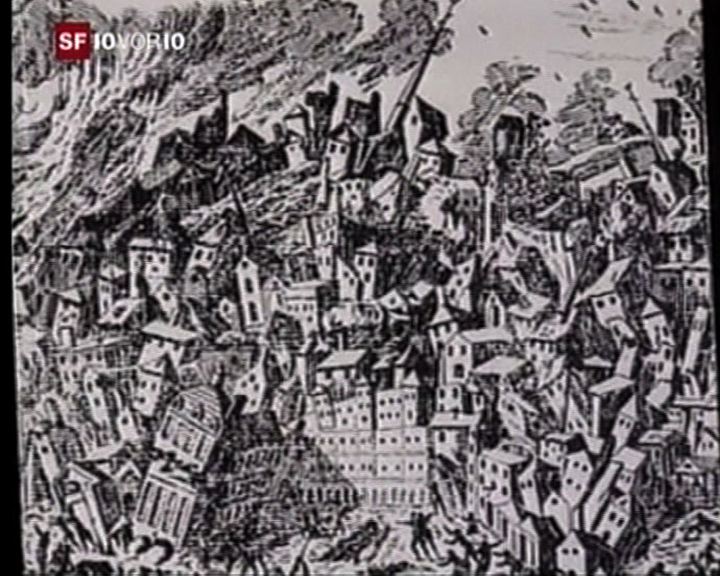Chile steps up quake rescue effort

The race continues to help the millions affected by the devastating earthquake that rocked Chile on Saturday, killing more than 700 people.
Swiss humanitarian experts have arrived in Chile to support the rescue effort. For the moment there are no reports of Swiss nationals injured or killed in the disaster.
“We face a catastrophe of such unthinkable magnitude that it will require a giant effort [for Chile to recover],” Chilean President Michelle Bachelet told reporters on Sunday in the capital Santiago.
Bachelet announced emergency measures to cope with the destruction of the 8.8-magnitude quake, which has affected two million people.
She ordered 10,000 troops to help deliver food, water and blankets and to clear rubble from roads, and she urged power companies to restore service first to hospitals, health clinics and shelters. Field hospitals were planned for hard-hit Concepcion, Talca and Curico.
The president said that the authorities should quickly identify the dead and return them to their families to ensure “the dignified burials that they deserve”.
Bachelet added that Chile needed field hospitals and temporary bridges, water purification plants and damage assessment experts – as well as rescuers to help relieve exhausted workers.
The Swiss foreign ministry declared on Monday that it had received a request for support from the Chilean authorities for emergency relief, civil engineering and earthquake rescue specialists.
“Unfortunately it will be too late for Switzerland to send quake specialists given the distance and transport problems,” explained spokesman Andreas Stauffer.
But a team of Swiss humanitarian experts has arrived in the stricken regions to help determine the specific emergency needs, such as tents and food, he added.
Different pictures
“The three minutes of shaking were incredibly long,” Regula Ochsenbein, a Swiss national who lives in the Chilean capital Santiago, told swissinfo.ch.
Her house was spared by Saturday’s earthquake and the situation in the capital is “almost back to normal” after minor damage to historic infrastructure. Water supplies are now working, and food – albeit in reduced quantities – is available on supermarket shelves, she explained.
Santiago’s airport has started to receive international flights, which had been suspended after the quake. Officials said the runways were unscathed but the terminal building was damaged.
But the situation in the worst-affected regions south of the capital presents a completely different picture.
The epicentre of the quake was 115km northeast of Concepcion and 32km southwest of Santiago.
In Concepcion, police fired tear gas and imposed an overnight curfew to control looters who sacked virtually every market at the weekend.
“I feel abandoned by the authorities,” Eduardo Aundez, a Spanish professor, told Associated Press. “We believe the government didn’t take the necessary measures in time, and now supplies of food and water are going to be much more complicated.”
Efforts to determine the full scope of destruction were undermined by an endless string of aftershocks that turned more buildings into rubble – and forced thousands to set up tents in parks and along roads.
State television showed scenes of devastation as giant waves triggered by the quake lashed central coastal settlements. Many roads and bridges were damaged or destroyed, and in numerous locations people have no water or electricity.
“The survivors are looking helpless,” said Ochsenbein. “The lack of support is leading to increasing despair.”
Swiss nationals
Swiss expat Ramon Dufey, who lives near the town of Ercilla 100km south of Concepcion, felt the full force of the huge quake.
“It was impressive. The house shook in all directions, you could not even walk, everything fell down and was broken… but the building, fortunately, stood up,” he said.
An official at the Swiss embassy in Santiago told swissinfo.ch that no Swiss had been reported injured or killed in the disaster.
There are an estimated 4,400 Swiss nationals living in Chile, of whom 3,800 have dual nationality.
Simon Bradley, swissinfo.ch and agencies (with input from Mariel Jara and Regula Ochsenbein in Santiago)
More than 700 people are now feared dead in the 8.8-magnitude earthquake that hit Chile on February 27, 2010.
The epicentre of the quake was 115km north-east of Concepcion and 325km south-west of the capital, Santiago. Around 1.5 million homes have been damaged, alongside highways and bridges.
One US risk assessor, Eqecat, put the cost of the damage at $15-30billion (SFr14-28 billion), or 10-20% of gross domestic product.
Tsunami warnings were issued for much of the Pacific, including Hawaii and Japan, but the waves proved to be relatively minor, about a metre high when they hit Japan. But in Chile waves inundated coastal towns.
Defence Minister Francisco Vidal acknowledged the navy made a mistake by not immediately activating a tsunami warning after the quake hit before dawn on Saturday. Port captains in several coastal towns did, saving what Vidal called hundreds of lives.


In compliance with the JTI standards
More: SWI swissinfo.ch certified by the Journalism Trust Initiative


You can find an overview of ongoing debates with our journalists here. Please join us!
If you want to start a conversation about a topic raised in this article or want to report factual errors, email us at english@swissinfo.ch.